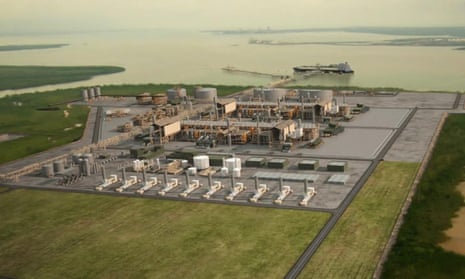An attempt by the operator of a $34bn gas project to walk away from environmental offset obligations because it claims its impact was not as big as expected is “radically premature”, a legal group has claimed.
The Inpex-operated Ichthys LNG project to extract gas from off the coast of Western Australia, pipe it to a processing plant near Darwin, and then export it – primarily to Japan – received environmental approval in 2011 from the federal Labor government.
The approval, granted until 2061, was given provided Inpex undertook about $91m of work to offset its impact on the Top End region.
However, ABC has reported Inpex sought to vary conditions of its environmental obligations under the Environmental Protection and Biodiversity Conservation Act, and abandon $30m worth of offset projects.
Citing “independently verified environmental studies”, the company said the originally assessed risks “are no longer relevant and extremely unlikely to be realised in the future,” Sean Kildare, Inpex Australia’s Darwin general manager, told Guardian Australia.
However, David Morris, principal legal officer at the NT Environmental Defenders Office (EDO), accused Inpex of walking away from promised projects without sufficient reason.
“If [Inpex’s claim] is true then fantastic, but I think it’s radically premature,” Morris told Guardian Australia.
“It’s not true to say this project hasn’t had an impact. There was large-scale habitat clearing to work on the site, and dredging in the harbour. Sometimes the long-term impacts of dredging aren’t known for many, many years.”
There had only been five years of data collection since the project was approved in 2011, said Morris.
“We know in the NT there’s a lack of available data, particularly in relation to movements and ecology of these megafauna species. [Inpex] should be commended for the projects they’re doing but they shouldn’t be walking away from the ones they promised to do.”
Morris said Inpex can’t accurately predict how much additional impact the yet-to-start 40-year operation phase will have, and large resource projects often had huge problems like spills and leaks when operating.
“One of the principles of biodiversity offsetting is they are there for the duration of projects, but Inpex only seems to be contemplating if it will have any impact during the construction phase,” he said.
Kildare told Guardian Australia projections for impacts during the operational phase were included in the revised determinations.
Among the projects believed to be facing cancellation should Inpex’s request be approved is a $24m 22-year marine megafauna management program in the western Top End.
The project provided for Aboriginal groups to co-manage marine animal populations including dugongs, marine turtles and dolphins, and was designed to compensate for “potential loss and degradation”.
In its coastal offset strategy, Inpex lauded the conservation outcomes it’s program would bring, as well as community benefits to Aboriginal people through training, employment and natural resource management skills.
“They’re walking away from all that because they’re saying we’ve had a better outcome than we thought,” said Morris.
The ABC also reported large marine and land conservation areas would also be dumped under the proposal.
Kildare did not say which projects would no longer go ahead, but listed a number which were under way or in an “advanced planning phase”, including aerial surveys, monitoring of habitats, animal species and air quality, and a greenhouse gas offset program.
He said predicted impacts on “listed, threatened and migratory species” were either removed, proven to have had no significant direct or indirect impact, or were not applicable based on expert advice.
“This is due to world-class environmental management and a significant investment of time, money and people resources,” he said, making particular note of improvements to dredging methodology in Darwin harbour.
The federal Department of Environment confirmed Inpex approached it with the request in October last year, but said no decision had yet been made. The department has sought further documentation from Inpex to support its request, a spokesman said.
